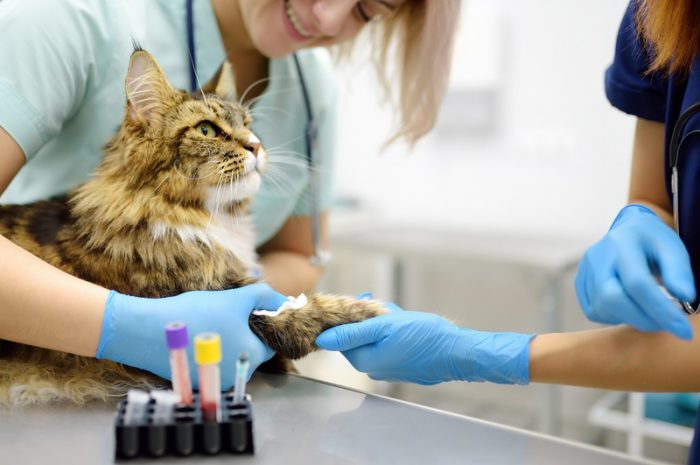An Overview of Asbestos Litigation: What You Need to Know Before Filing a Claim
Asbestos litigation plays a critical role for individuals affected by mesothelioma, offering a pathway for seeking justice and compensation. This article provides essential information for those considering filing a legal claim due to asbestos exposure.
1. Background on Asbestos Litigation
Asbestos was widely used for its durability and heat resistance, but exposure to asbestos fibers has long-term health implications, including mesothelioma, a serious form of cancer predominantly caused by asbestos exposure. Asbestos litigation arose when the harmful effects of asbestos, including mesothelioma exposure, became widely recognized, leading to numerous court cases and settlements.
Legal avenues are crucial for affected individuals who experience severe health impacts due to mesothelioma exposure from asbestos. Understanding the history and current state of asbestos litigation helps plaintiffs navigate this complex legal landscape more effectively.
2. Types of Asbestos Claims
Personal Injury Claims
Personal injury claims are filed by individuals diagnosed with an asbestos-related disease like mesothelioma. These claims aim to seek compensation for medical expenses, lost income, and pain and suffering.
The typical process involves documenting the exposure history, medical diagnosis, and filing the claim with the court. An experienced lawyer can assist in gathering the necessary evidence and navigating the intricate legal procedures.
Wrongful Death Claims
Wrongful death claims are filed by family members of individuals who have died from asbestos-related diseases. These claims seek compensation for funeral expenses, loss of companionship, and other related damages.
Filing a wrongful death claim involves submitting proof of the deceased’s exposure to asbestos and medical records indicating mesothelioma as the cause of death. Legal guidance is crucial in presenting a compelling case for compensation.
3. Eligibility Criteria
Who Can File a Claim
Eligibility to file a lawsuit for asbestos exposure depends on several factors. Typically, those who can file include individuals diagnosed with mesothelioma or another asbestos-related disease and family members filing on behalf of a deceased relative.
Essential documents include medical diagnosis proving an asbestos-related disease and evidence of asbestos exposure, such as employment history and witness statements. An experienced lawyer can help assess eligibility and prepare the necessary documentation.
4. Legal Process Overview
Filing a Claim
The first step in filing a claim is consulting with asbestos lawsuit lawyers to evaluate the case. Lawyers will gather pertinent information, including medical records, employment history, and details of asbestos exposure.
Once the case is built, the lawyer will file a complaint with the court, officially initiating the legal proceedings. This step is critical as it formally asserts the claim against the defendants, typically companies responsible for asbestos exposure.
Legal Proceedings
Legal proceedings involve several phases, such as discovery, where both parties exchange relevant information, depositions of witnesses, and possible court hearings. Throughout this process, experienced asbestos lawsuit lawyers play a vital role in advocating for the plaintiff’s rights.
Negotiations for settlements may occur, aiming for fair compensation without going to trial. However, if a settlement isn’t reached, the case proceeds to trial, where the judge or jury delivers a verdict.
Potential Outcomes
Outcomes of asbestos litigation can vary. Plaintiffs might receive settlements, which are often negotiated out of court, or get a jury verdict awarding damages. Compensation typically covers medical expenses, lost wages, and punitive damages.
It’s essential to have realistic expectations and discuss potential outcomes with asbestos lawsuit lawyers to understand the strengths and weaknesses of the case. Effective legal representation is crucial for achieving a favorable outcome.
5. Key Considerations
Statute of Limitations
The statute of limitations for filing a claim varies by state and typically starts from the date of diagnosis or death. Missing this deadline can forfeit the right to sue, making it imperative to act swiftly.
Understanding the specific statute of limitations for your state is essential. Consulting with experienced asbestos lawsuit lawyers as early as possible ensures compliance with legal timelines and preserves the right to compensation.
Evidence Required
Key evidence for a successful claim includes medical records diagnosing mesothelioma, detailed documentation of asbestos exposure, and employment history. Witness statements and expert testimony may also bolster the case.
Collecting and organizing this evidence can be complex and time-consuming. An experienced lawyer can assist in compiling the necessary documentation and presenting a compelling case in court.
Selecting a Lawyer
Choosing the right lawyer is critical. Look for attorneys with extensive experience in asbestos litigation who have a successful track record and positive client feedback.
An experienced lawyer can provide invaluable guidance throughout the legal process, from evaluating the case’s merits to representing you in court. Leveraging their expertise can significantly enhance the chances of a favorable outcome.
FAQs
How long does the litigation process typically take?
The duration varies depending on the case’s complexity, but it generally ranges from several months to a few years. Factors include the amount of evidence, the court’s schedule, and whether the case goes to trial.
What if I don’t remember my exact exposure timeline?
Lawyers can often help reconstruct exposure history through employment records, witness statements, and industry databases. Providing as much detail as possible can aid in building a compelling case.
Final Thoughts
Understanding the basics of asbestos litigation is crucial for mesothelioma patients and their families. By being informed about the legal process, eligibility criteria, and key considerations, you can take empowered steps toward seeking justice and compensation. Engage experienced asbestos lawsuit lawyers to guide you through this complex journey and ensure the best possible outcome for your claim.




